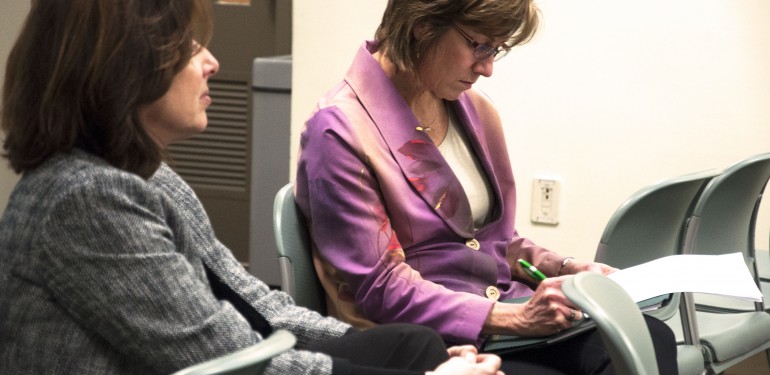Suburban Action against a Growing Problem
Human Trafficking has long been considered a problem in large the cities. From New York to Portland, these hubs for human trafficking have engaged service providers, lawyers, law enforcement officials, and other professionals focused on raising awareness and tackling the needs. Until recently, these stakeholders have largely neglected suburban areas. However, suburban areas are slowly but surely creating resources and infrastructure to support victims of human trafficking.
On January 31, in Northern Virginia, the City of Alexandria, Arlington County, City of Fairfax, and Fairfax County Commissions for Women sponsored an event to raise awareness about human trafficking in the suburbs. Entitled “Human Trafficking: Get the Facts and Take Action,” the event attracted nearly 500 individuals from these counties for a three hour information session and call to action.
According to Elizabeth Scaife, Director of Training at Shared Hope International, Fairfax County, VA, leads the nation in gang-controlled trafficking cases and prosecutions. These offenses often involve a network of offenders and multiple victims. Familial trafficking to accrue money for rent or drugs is also a rampant crime in the surrounding DC suburbs.
Responses to trafficking began in 2004, when the Northern Virginia Human Trafficking Task Forced formed to address the increasing number of trafficking cases occurring in the state. However, it wasn’t until 2013 that the Task Force was actually able to take action against trafficking. The Task Force received a $1 Million grant from Fairfax County to combat trafficking and establish a structured law enforcement response. Within a year, more than 250 victims were identified as well as over 70 suspects.
Growing awareness has also sparked a grassroots response from individuals who learned about the problem and wanted to do something to help. For example, Beth Saunders, a panelist at the event, founded the Just Ask Prevention Project as a means of combatting teen sex trafficking in northern Virginia and the greater Washington, DC area. Saunders formerly led the International Operations Deployment efforts at Marriott International. Upon hearing and learning about trafficking, she began volunteering in Europe with NGOs to eradicate trafficking and later founded Just Ask to combat trafficking locally. Elizabeth Payne, the K-12 Coordinator for Health, Family Life, and Physical Education for Fairfax County Public Schools, Department of Instructional Services, has single-handedly worked to incorporate trafficking awareness into the Family Life Education (FLE) program in public schools.
Despite the local mobilization efforts and increased number of cases and prosecutions, only two people, a detective and a crime analyst, are in charge of investigating trafficking cases in the entire Northern Virginia area. William Woolf, the detective in charge of handling these cases, stated during the event, that in order to effectively address the need, a team of at least six, and ideally twelve detectives, would be required.
The Northern Virginia suburbs are not unique.. Indeed, regardless of which suburb we might live in, sex trafficking is happening. Traffickers exploit the vulnerabilities of individuals, and according to Woolf, “these are vulnerabilities that exist across all areas.” Northern Virginia has taken a significant step in combatting trafficking, and clearly still has a lot further to go. Other suburban areas will also need to recognize that this issue exists in their own backyards as well.
Firas Nasr is the Director of Communications at Human Trafficking Search.
Photo Credit: Fourth Estate

